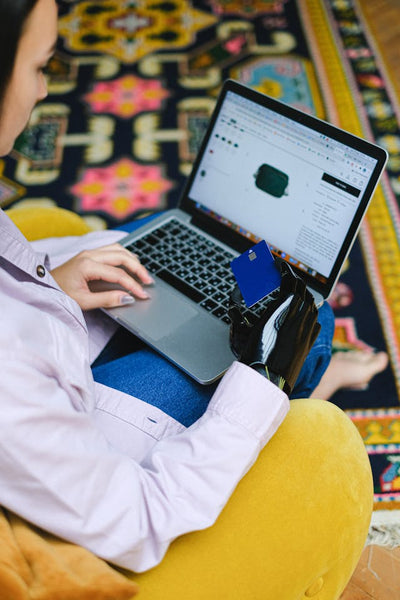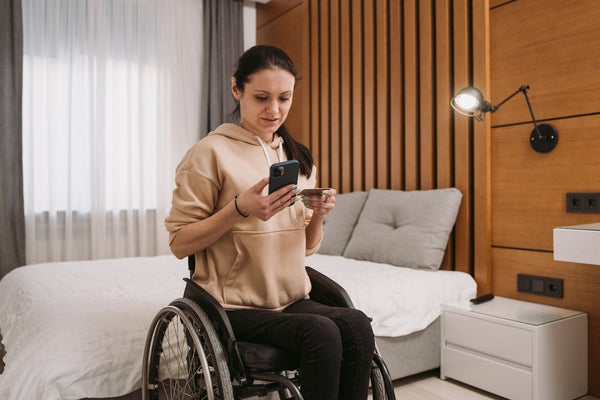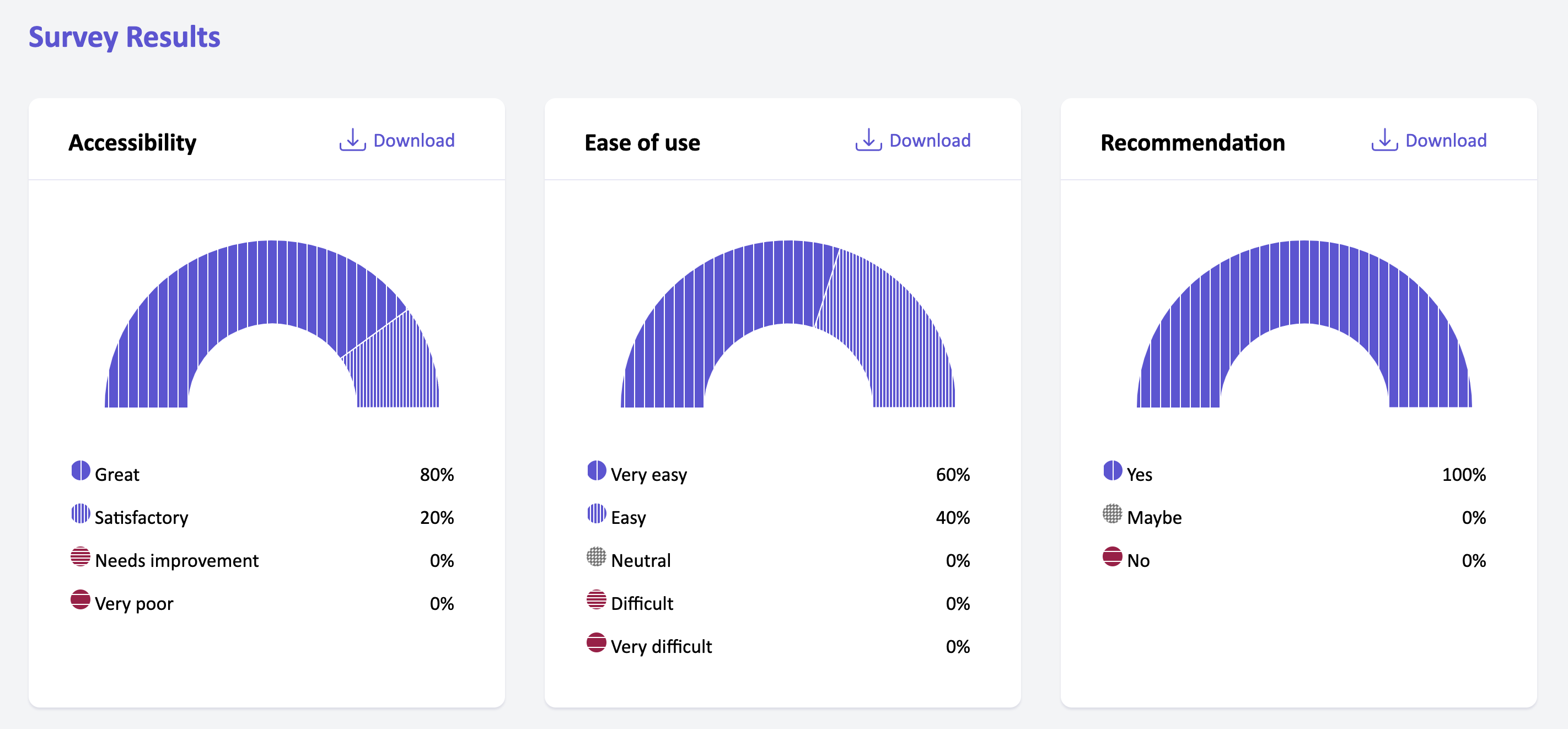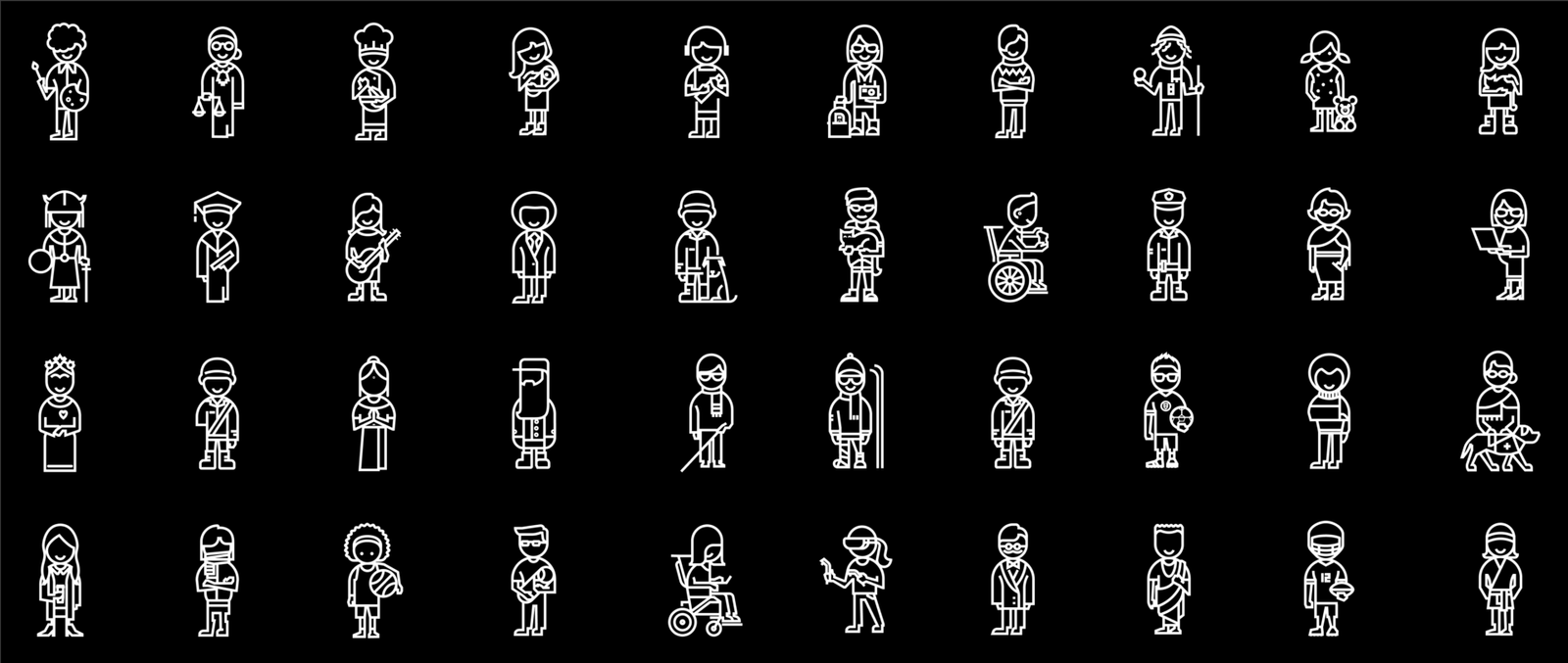At Shopify, our goal for accessibility is to make commerce accessible to everyone. This includes all entrepreneurs of any ability or age, and anyone within the Shopify ecosystem, including shoppers!
Shopify Checkout is a highly accessible user experience by default. This means shoppers with disabilities can buy with confidence using their own assistive devices and technologies; no third-party apps or plug-ins are required.
Before we get into the details of Checkout’s accessibility, let’s first define what we’re discussing.
What is digital accessibility?
“Digital accessibility” refers to the access of digital content. The definition we share reads as:
“Web accessibility is the practice of designing and developing a website or web application to be usable for as many people as possible, regardless of physical impairment or cognitive ability.”
When digital products are made with accessibility baked-in, people with disabilities can equally perceive, operate, understand, and interact with it. This not only helps with usability, but builds confidence and trust in the digital product and brand.
Why is accessibility important to my business?
When it comes to businesses of any size, accessibility helps to enable greater success in entrepreneurship. It does so by making your product open and available to more people. More people means greater growth opportunities, increased revenue, and positive public perception.

An industry report from 2020 estimates the number of people with disabilities to be 1.85 billion, which makes it a “market larger than China.” This represents a market opportunity in the trillion-dollar range. (Disability touches 73% of consumers and controls more than $13 trillion in annual disposable income.)
Let’s review how this helps your business regarding brand loyalty, competitive advantage, and conversion opportunity.
Brand loyalty
A recent study shows how consumers identify with and remain loyal to brands that reflect their own values. A key takeaway states 82% of shoppers want a consumer brand’s values to align with their own.
Some of the values mentioned in this study reflect the idea of inclusivity, which is at the heart of accessibility.
Competitive advantage
Implementing accessibility and inclusive design into your product can help you have a competitive advantage.
The WebAIM Million, an annual study that reviews the accessibility of the top one million homepages shares that across the one million homepages, almost 50 million distinct accessibility errors were detected—an average of 50.0 errors per page.
This reflects how accessibility is, unfortunately, not the norm. If your business provides an accessible user experience by default, this will set you apart from your competitors. People will take notice and recognize this is a part of your business values.
Increase conversion
Two studies conducted by Shopify partner Fable Tech Labs share compelling data for entrepreneurs.
The first looks closely at the relationship with disabled users and accessible apps on mobile platforms. This study reveals 94% of respondents factor the accessibility of apps and mobile sites into their decision around which businesses to support.
The other study looks at the state of online shopping for people with disabilities. This also shares more revealing data points, including:
- 71% of assistive technology users will abandon a digital experience that is difficult to use.
- Confidence building user experience is key to repeat purchases and customer loyalty.
What these studies reveal is how deploying an accessible user experience helps to increase conversion. Shoppers who are able to use your website or app with ease and confidence will do so and likely become loyal, repeat customers.
These important insights provide a sense of what the online shopping experience is like for disabled customers, and why it’s important for your business.
How does Shopify ensure an accessible checkout?
Shopify Checkout is not only the world’s highest-converting checkout, trusted by the biggest brands, it’s also highly accessible by default. Our Checkout design and engineering teams take great care in crafting accessible and usable components in conjunction with people with disabilities who rely on assistive technology.
Checkout Extensibility can add customizations to Checkout, including new visual elements built using a component library provided by Shopify. The components in this library are continuously tested to ensure they meet our internal accessibility standard. However, app developers still need to apply accessibility best practices when using these components.

Accessibility review
Accessibility of Checkout is reviewed on a continuous basis, the primary focus being usability with assistive technology and the coverage of core user flows. This is achieved through:
-
Design review of new components when required.
Our internal accessibility team works with Checkout designers when new components or features are being created. By catching potential accessibility issues earlier in the product creation lifecycle, the team accelerates time to market by avoiding shipping defects and sprints to retrofit. It also means wider adoption by shoppers using assistive technology from day one.
-
Automated accessibility testing at the component level is continuous.
Our component library and CI environments include accessibility testing via automation. These tests report high-level, objective accessibility defects.
-
Usability test sessions with people with disabilities are conducted quarterly (or on demand when required.)
Test results disclose usability issues: subjective accessibility defects or blockers that may prevent task completion. These are triaged and sent to the team responsible for remediation.
This task is contracted out to Shopify partner Fable Tech Labs.
-
Internal, manual assessments are conducted bi-annually (or on demand when required.)
Deep-dive reviews are completed by Shopify’s internal accessibility team. By working through Shopify’s Accessibility Assessment Checklist — success criteria that reflect the latest WCAG standards — both design and code are thoroughly scrutinized in order to reveal defects that may have been missed otherwise.
Conducting accessibility reviews on a continuous basis means our Checkout teams are able to monitor for and remediate accessibility defects in a timely manner. This helps to ensure Checkout flows are highly accessible and usable by assistive technology users, further building confidence and trust in your brand.
Usability statistics
Regular usability testing of Checkout provides metrics and insight into where we prioritize effort. It also reveals blockers that need immediate attention.
A recent usability test session of Checkout revealed:
- 100% completion rate across varying assistive technologies; screen reader, voice dictation, and alternative navigation
- 86/100 accessibility score across Checkout state: guest, logged in, and mobile
- A total of two reported issues for a single usability test session, which were promptly sent to our engineers for remediation

As we continue to innovate and increase the extensibility of Checkout, we anticipate that these metrics will be consistent/improve across future test sessions.
Accessibility is good for business
Shopify Checkout is the world’s highest-converting checkout, trusted by the biggest brands, and is highly accessible by default. An accessible ecommerce solution means additional brand loyalty, giving your business a competitive edge and increased conversion opportunities.
By conducting accessibility reviews on a continuous basis, our Checkout teams are able to monitor for and remediate accessibility defects in a timely manner.
Up to 27% of adults in the United States have some type of disability. With more than 10% of all US ecommerce powered by Shopify, you’re well equipped to support your customer’s needs from day one with Shopify Checkout.
Accessibility is good for business. Start, run, and grow your business with Shopify!

